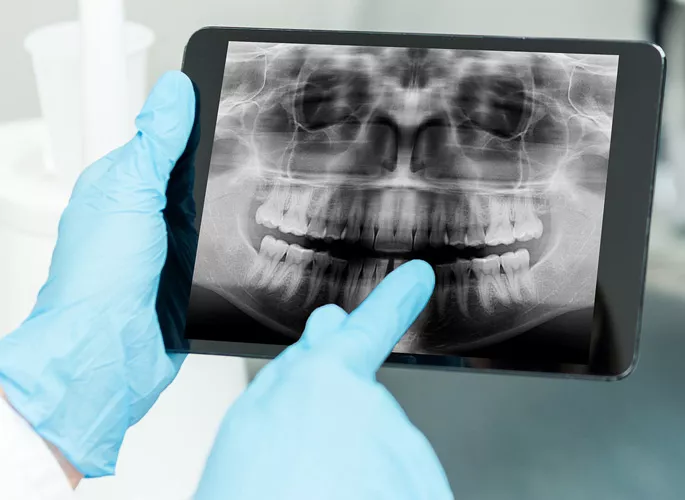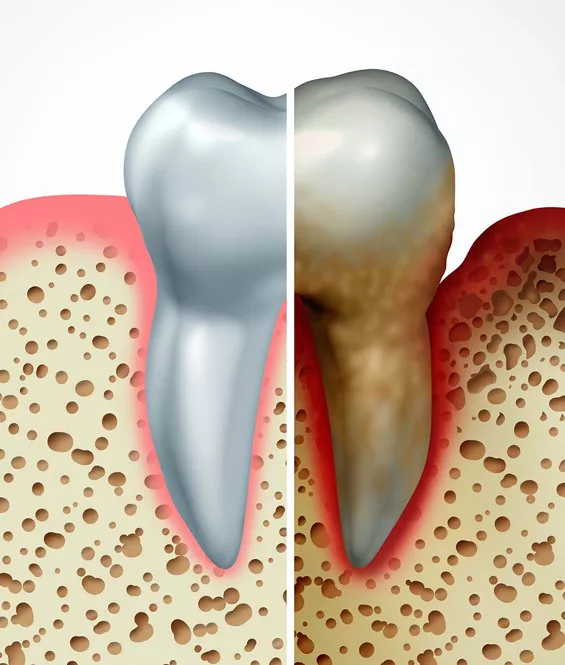Prevention and Treatment of Gum Disease
Your gums help protect your teeth from injury and infection. We provide periodontal services to help keep your gums healthy and prevent or treat gum infections and disease.

Gum Disease
Gum disease, or periodontal disease, is caused by bacteria infection of the gums. Symptoms of gum disease include bleeding or sore gums, chronic bad breath, receding gums, and loose teeth. If it isn't treated, gum disease can lead to tooth loss and has been linked to heart disease and other health conditions. It can be prevented by brushing and flossing and going for regular dental exams and cleaning.
Tooth Extraction
Sometimes damaged teeth need to be extracted to prevent risk to your other teeth and surrounding tissues. We perform extractions and offer a variety of replacement options such as bridges or dental implants.
Frenectomy
Frenectomy is a procedure to remove connective tissue inside your mouth. Sometimes this tissue can be too tight and can cause discomfort and difficulty eating and speaking, so we perform a frenectomy to relieve the tension.
Scaling and Root Planing
Plaque and tartar buildup on your teeth can make your gums vulnerable to bacterial infection. Scaling and root planing are deep cleaning techniques that remove this buildup above the gumline.
Video: Scaling
Frequently Asked Questions
How is gum disease linked to heart disease?
Research shows that gum disease can increase your risk of developing heart disease. The link isn’t completely understood. Scientists believe that untreated gum disease can increase the level of inflammation in your body, which can increase the risk of developing inflammatory diseases such as heart disease. More research is needed to completely understand this link, however.
Is there a link between gum disease and diabetes?
Research suggests that there’s a two-way link between gum disease and diabetes. Diabetes can increase the risk of developing gum disease. At the same time, good dental and periodontal hygiene may have a positive effect on blood sugar levels.
What’s the difference between plaque and tartar?
Plaque is a colorless biofilm that forms on the surface of your teeth. Bacteria can live in plaque and secrete acids that damage your teeth and irritate your gums, which can lead to tooth decay and gum infections. If the plaque isn’t removed, it hardens into tartar. Tartar is extremely hard and can’t be removed with a toothbrush. It can only be removed by a dental professional using special tools.
